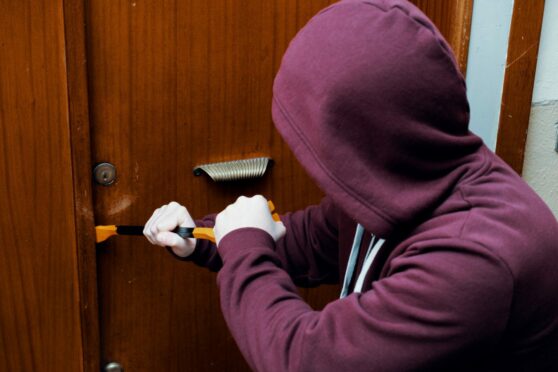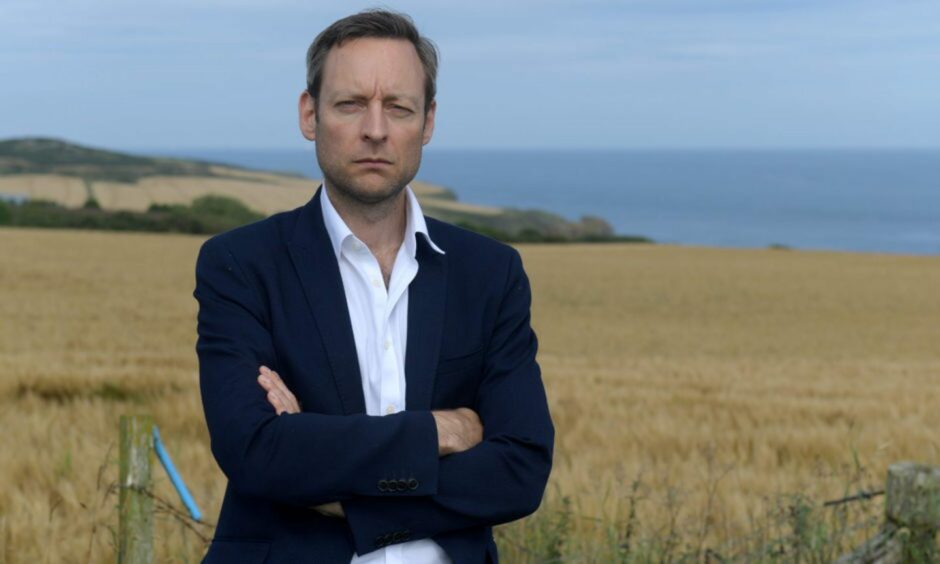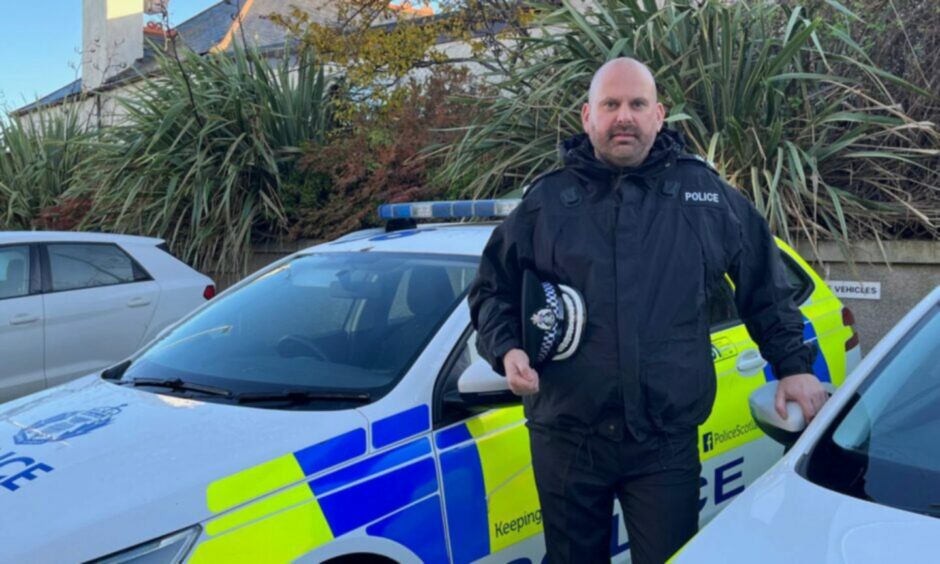Police Scotland’s detection rate of break-ins to secure areas in the north-east “plummeted” in the Spring, new figures have revealed.
Detections of thefts by opening lockfast places dropped from 42.1% at the start of the last financial year to just 7.7% in the first quarter of the 2023/2024 year.
The crime includes stealing contents protected by lock and key from a room, portable storage cabin, mobile caravan, cupboard, safe, desk or drawer, cash box, or showcase.
Lockfast thefts, including attempts, fell from 16 detections – when reports are cleared up/resolved – in 2022/23 (38 incidents reported/recorded) to just two in 2023/24 (26 incidents reported/recorded).
It’s increased existing concerns about police resources in the region, which lost 39 officers over a one-year period.
Now, North East MSP Liam Kerr has warned that Police Scotland is being expected to do “too much with too little”.
The Scottish Conservative said: “Theft from secured property is a problem that affects the whole of the north-east, whether that’s from a safe in an Aberdeen shop, a caravan in Braemar, or farm cabins in the Mearns.
“In the city, towns and rural areas, theft is a worry.”
The Press and Journal asked Police Scotland to comment on the drop in detection rates for break-ins.
A spokeswoman responded with a link to the Police Scotland press release about last week’s announcement that its officers will no longer investigate some minor crimes reported to them in the north-east.
The spokeswoman added: “For accuracy, we have never said we are stopping investigating housebreaking.”
The region’s new pilot scheme aims to give officers “more time to focus on proportionate lines of enquiry, responding to emergencies and keeping people safe from harm,” a statement from the force claimed.
Offences such as garden theft, in which there is no CCTV or eyewitness evidence, may have no further action taken once recorded by the police.
“If there are no proportionate lines of enquiry such as CCTV or eyewitness evidence, then we may inform the caller that the report will be filed and no further action taken,” the statement explained.
But in a move to reassure the public, it also explained, “Appropriate measures will be taken to ensure safety and wellbeing” in the event of any reports involving public “risk, harm or vulnerability”.
Divisional Commander, Chief Superintendent Graeme Mackie said: “The pilot process will enable local police officers to focus on those crimes that have proportionate lines of enquiry and potentially enable them to give more time to local concerns and priorities in the area.
“We also know that sometimes people simply want to report a crime and we want to provide that service efficiently.
“Please continue to report crime in your area. Local officers will continue to review closed reports to enable them to map local crime trends and this may mean an enquiry is re-opened and investigated.”
Interim Deputy Chief Constable Alan Speirs has blamed having to make “hard choices” on a “real terms reduction” in funding for 2023/24.
Police may take no further action after you call them
Specially trained call handlers could get back to callers much more quickly to tell them whether a crime they reported would be investigated.
Callers may be told that no further action will be taken.
However, in the process launched on August 28, there is also a second layer of checks.
An Aberdeen-based “crime management team” will review all reported crimes and carry out the same assessments.
If they feel a matter requires further investigation, then a police officer will be assigned to the case to probe it further.
The trial will run for 12 weeks before it is potentially rolled out across the rest of Scotland.
A similar approach has previously been led by Grampian Police.
‘Trying their best with shrinking resources’
Mr Kerr added: “It’s clear from the 101 trial that local officers will be concentrating on more serious crimes where there’s a risk to people.
“In an environment where the SNP government has cut policing budgets and caused alarm in the force, it’s obvious why this is.
“They’re trying their best to do a good job with shrinking resources.
“But theft is also serious, and victims of crime need to know their property is safe. Under this pilot, detection rates which have plummeted can’t reduce any further.
“Being asked to do too much with too little is at the heart of the problem, and that’s why I’ve asked Justice Secretary Angela Constance to explain how she’s going to support 101, so all crimes and their victims get the right response from police.”
‘Pressures will continue’
First Minister Humza Yousaf has recently come under criticism at Holyrood, dismissing claims that north-east residents will be used as “guinea pigs” for the pilot scheme.
Police Scotland has admitted that service levels in some areas “will reduce” and that response times may “take longer” after falls in funding.
It’s forced the constabulary to cut more than 600 officers in the space of a year, down to a total of just over 16,600 – the lowest level since 2008.
The Scottish Police Authority watchdog has already acknowledged that “in the current economic climate, with a reduced budget, reducing resources and increasing demand, it is likely that policing performance will be impacted”.
In Police Scotland’s Quarter One Performance Report for 2023/24, DCC Speirs referred to the period as “a challenging time for policing in Scotland” and warned that “those pressures will continue”.
He added: “Hard choices are being taken to maintain effective policing within the funding available and action is being taken to achieve savings.
“What we do may take longer or may need to be done differently, and the levels of service we provide to the public relating to some issues will reduce.”
The Scottish Government has been approached for comment.
For all the latest court cases in Aberdeen as well as crime and breaking incidents, join our Facebook group.


